Faculty News
New Faces at SEAS
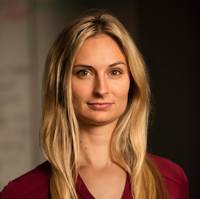
LYDIA CHILTON
Assistant Professor, Computer Science
PhD, University of Washington, 2015; MEng, MIT, 2009; SB, MIT, 2007
Lydia Chilton’s area of study is human-computer interaction (HCI) with a focus on computational design, viewing the design process from a computational standpoint. Two current projects are constructing visual metaphors for creative ads and using computational tools to write humor and news satire. Prior to Columbia Engineering, she was a postdoctoral student at Stanford University.
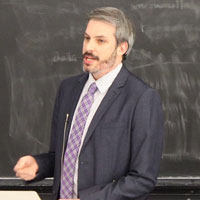
ETHAN KATZ-BASSETT
Associate Professor, Electrical Engineering PhD, University of Washington, 2012; BA, Williams College, 2001
Ethan Katz-Bassett seeks to improve the reliability and performance of Internet services though the design of deployable systems. His research interests include Internet-scale distributed systems, Internet measurement, routing, and content delivery. Previously he has worked at Google and taught in the Department of Computer Science at the University of Southern California, where he was the Andrew and Erna Viterbi Early Career Chair.
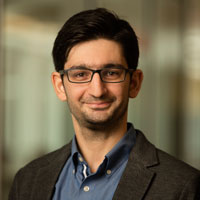
DION KHODAGHOLY
Assistant Professor, Electrical Engineering PhD, École des Mines, France, 2012; MS, École des Mines, 2009; MEng, University of Birmingham, UK, 2008
Dion Khodagholy’s research aims to use unique properties of materials for the purpose of designing and developing novel electronic devices that allow efficient interaction with biological substrates, specifically neural networks and the brain. This process involves design, characterization, and fabrication of highperformance biocompatible electronics to acquire and analyze neural data. The ultimate goal is to translate such advances in electronics, materials, and neuroscience into more effective diagnostics and treatments for neuropsychiatric diseases. Khodagholy completed a postdoctoral fellowship in systems neuroscience at New York University Langone Medical Center.
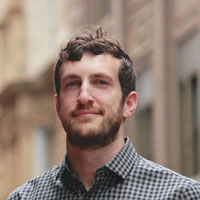
DANIEL LACKER
Assistant Professor, Industrial Engineering and Operations Research PhD, Princeton University, 2015; BS, Carnegie Mellon University, 2010
Dan Lacker is interested in many areas of applied probability, stochastic analysis, and financial mathematics, with a focus on mean field games, risk measures, and large deviations. He was a National Science Foundation (NSF) postdoctoral fellow in the Division of Applied Mathematics at Brown University, as well as an Invited Fellow at the Institute for Pure and Applied Mathematics Program on Broad Perspectives and New Directions in Financial Mathematics. He will teach Stochastic Models in Financial Engineering in the fall.
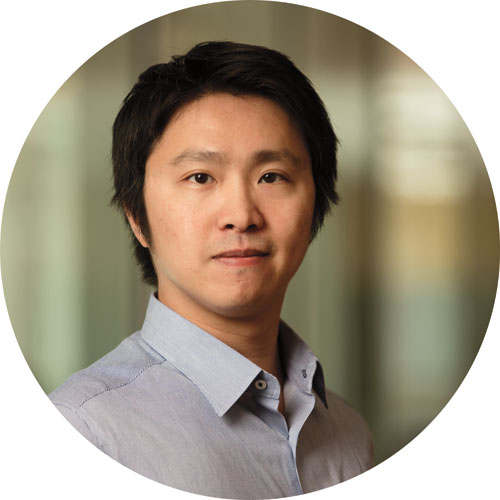
HENRY LAM
Associate Professor, Industrial Engineering and Operations Research PhD, Harvard University, 2011; BS, University of Hong Kong, Hong Kong, 2005
Henry Lam researches in the areas of Monte Carlo simulation, risk analysis, and stochastic optimization. His current focus is on the data integration, uncertainty quantification, and developments of robust methodologies in these areas. At Columbia, Lam is teaching stochastic modeling and simulation. Lam has previously taught at the University of Michigan–Ann Arbor and Boston University.
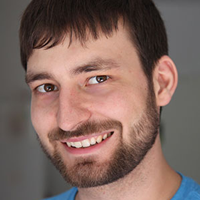
ANDREAS MÜLLER
Lecturer in Discipline, Computer Science PhD, University of Bonn, Germany, 2014; MS, University of Bonn, 2009
Andreas Müller is interested in creating open tools to increase access to machine learning applications and high-quality machine learning algorithms. He is the author of the O’Reilly Media book Introduction to Machine Learning with Python and one of the core developers of the scikit-learn machine learning library. He is affiliated with Columbia University’s Data Science Institute and has worked at the NYU Center for Data Science on open source and open science and as a machine learning scientist at Amazon. He will be co-teaching the Data Science Capstone this fall and teaching Applied Machine Learning in the spring.
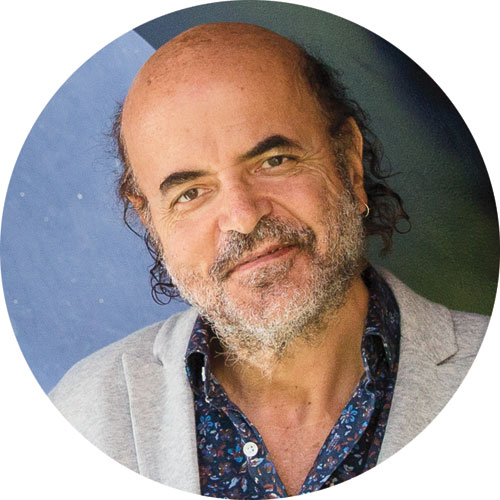
CHRISTOS PAPADIMITRIOU
The Donovan Family Professor, Computer Science PhD, Princeton University, 1976; BS, Athens Polytechnic, Greece, 1972
Christos Papadimitriou is one of the leading computer science theorists working today, known particularly for his work in computational complexity. In this area, he has helped define the boundaries of what can be done computationally, proving the difficulty of problems fundamental to computer science and introducing new models and concepts. At the same time, he has widened the computational lens to encompass fields of study outside computer science and, in this way, has contributed new information to biology, economics (helping found algorithmic game theory in the process), artificial intelligence and learning, databases, robotics, networks and the Internet, and recently the study of the brain. Papadimitriou is the fifth person to be awarded the Knuth Prize and is a recipient of the IEEE John von Neumann Medal, the EATCS Award, the IEEE Computer Society Charles Babbage Award, and the Gödel Prize. He is a fellow of the Association for Computer Machinery and the U.S. National Academy of Engineering and was elected to the U.S. National Academy of Sciences. He is the author of the widely used Computational Complexity and four other textbooks and has written three novels, including the bestselling Logicomix. He considers himself fundamentally a teacher; for 20 years he taught at UC Berkeley and, before that, at Harvard, MIT, the National Technical University of Athens, and other universities.
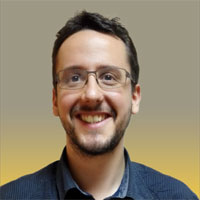
DYLAN POSSAMAI
Assistant Professor, Industrial Engineering and Operations Research PhD, École Polytechnique, France, 2011; MS, UPMC Sorbonne Universités, France, 2009; BS, École Polytechnique, 2009
Dylan Possamai’s research interests include stochastic analysis, backward stochastic differential equations, risk measures theory, model uncertainty, robust finance, stochastic control, contract theory, principal-agent problems, moral hazard, adverse selection, Malliavin calculus, and transaction costs. Prior to Columbia, he taught at Université Paris Dauphine (CEREMADE).

DONSUB RIM
Chu Assistant Professor, Applied Physics and Applied Mathematics PhD, University of Washington, 2017; BS, Yonsei University, South Korea, 2011
Donsub Rim’s research focuses on the development of reduced order models (ROMs) for hyperbolic partial development equations and related numerical techniques that help tackle uncertainty quantification (UQ) problems such as probabilistic tsunami hazard assessment (PTHA). He also studies inverse anisotropic conductivity from power densities in dimension three.
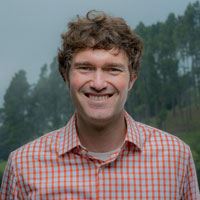
P. JAMES SCHUCK
Associate Professor, Mechanical Engineering PhD, Yale University, 2003; BA, UC Berkeley, 1997
P. James Schuck specializes in the study of sensing and engineering phenomena emerging from nanostructures and interfaces, with a focus on developing and applying advanced nano-optical probes and plasmonic devices. With his research he aims to characterize, understand, and control light-matter interactions at the level of single photons and electrons. Schuck was a postdoctoral student at Stanford University and a senior scientist at Lawrence Berkeley National Laboratory.
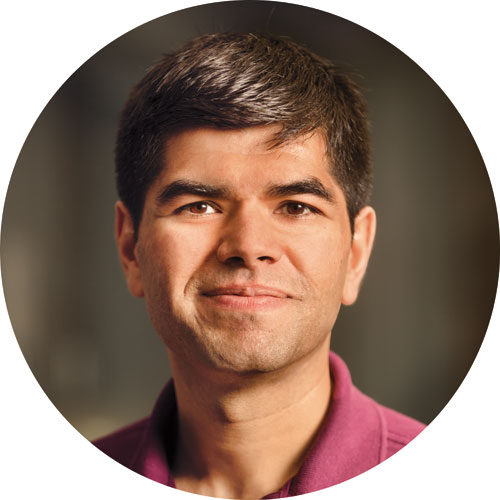
NAKUL VERMA
Lecturer in Discipline, Computer Science PhD, University of California, San Diego, 2012; BS, University of California, San Diego, 2004
Nakul Verma studies machine learning and high-dimensional statistics. He is especially interested in understanding and exploiting the intrinsic structure in data to design effective learning algorithms. Prior to joining Columbia, Verma worked at Janelia Research Campus, HHMI, as a research specialist developing statistical techniques to quantitatively analyze neuroscience data. He has also worked at Amazon as a research scientist developing risk assessment models for real-time fraud detection. He was awarded a Janelia Teaching Fellowship in 2015, and Provost Honors from University of California, San Diego, from 2001 to 2004.
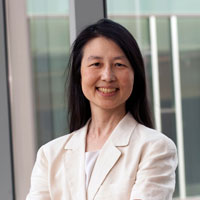
JEANNETTE WING
Avanessians Director of the Data Science Institute Professor, Computer Science PhD, MIT, 1983; SB and SM, MIT, 1979
Jeannette Wing is a leader in cybersecurity and privacy, formal methods, and programming languages. She is best known for her work on correctness conditions, such as linearizability (jointly with Maurice Herlihy) and behavioral subtyping (jointly with Barbara Liskov), for software systems. She is a prominent voice for computational thinking, the application of techniques used by computer scientists to all disciplines, which has influenced college and K-12 curricula worldwide. Prior to joining Columbia, she was corporate vice president of Microsoft Research and was the President’s Professor of Computer Science at Carnegie Mellon University, where she also headed the Computer Science Department. She previously worked at the National Science Foundation as assistant director for Computer and Information Science and Engineering. Wing has received distinguished service awards from the Computing Research Association and Association for Computing Machinery and is a fellow of the American Academy of Arts and Sciences, American Association for the Advancement of Science, ACM, and IEEE.
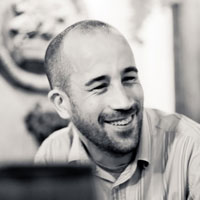
DREW YOUNGREN
Lecturer in Discipline, Applied Physics and Applied Mathematics PhD, Northwestern University, 2006; MA, New York University, 2007; MA, Stony Brook University, 2002; BS, Columbia University, 2000
Drew Youngren focuses chiefly on undergraduate mathematics education. He has taught for more than ten years a range of courses from general interest statistics to non-Euclidean geometry for mathematics majors. Of particular interest to Youngren is the role of technology, and more specifically computation, in the learning of mathematics. He has participated in grant work to introduce computational work in discrete mathematics and on a larger scale in linear algebra. At Columbia, he will be developing the multivariable calculus curriculum tailored to the needs of engineers and applied scientists, where he hopes similarly to infuse technological elements into a classical curriculum. He has received an Outstanding Teacher Award from the University of Chicago, a RET (Research Experiences for Teachers) Fellowship from the NSF, and a Newton Fellowship from Math for America.
Appointments to Endowed Professorships

CHRISTOS PAPADIMITRIOU
The Donovan Family Professor, Computer Science PhD, Princeton University, 1976; BS, Athens Polytechnic, Greece, 1972
Christos Papadimitriou is one of the leading computer science theorists working today, known particularly for his work in computational complexity. His research areas of interest include theory of algorithms and complexity, and its application to databases, optimization, AI, the Internet, game theory, neuroscience, biology, and evolution. Michael Donovan, P’13EN, vice chairman of the advertising technology company MediaOcean, along with his wife, Linda, endowed the professorship.

JEANNETTE WING
Avanessians Director of the Data Science Institute Professor, Computer Science PhD, MIT, 1983; SB and SM, MIT, 1979
A researcher in software systems and an early proponent of computational thinking, Jeannette Wing will lead Columbia University’s research, education, and outreach in data science as director of the Data Science Institute. Her appointment was endowed by Armen Avanessians, MS’83 and P(’12CC, ’17CC, ’17IA); chief investment officer of Goldman Sachs Asset Management’s Quantitative Investment Strategies Group.
Promotion to Full Professor
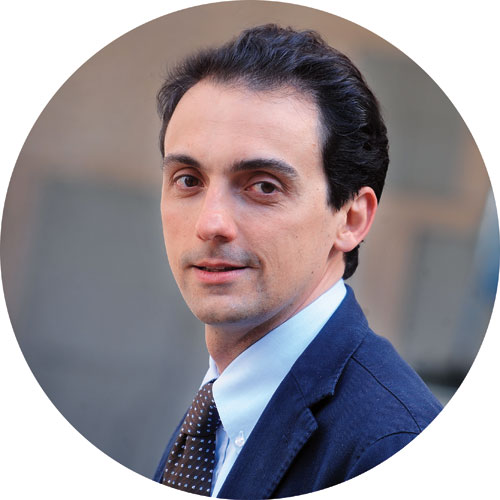
LUCA CARLONI
Computer Science
Luca Carloni creates and develops system architectures and design technologies for heterogeneous computing platforms such as systems-on-chip at the core of smartphones and servers for cloud-based data centers. Carloni has made research contributions across all main aspects of engineering such platforms, including system architecture, hardware design, software programming, networking, power management, rapid prototyping, system-level design methodologies, and computer-aided design (CAD) tools. Most recently, Carloni has proposed and developed embedded scalable platforms (ESP) as a novel approach to help engineering teams cope with the complexity challenges of designing and programming billion-transistor system-on-chip architectures, which integrate an increasing number of general-purpose processor cores and specialized hardware accelerators. He has received the NSF CAREER Award, the ONR Young Investigator Award, and the IEEE CEDA Early Career Award. He is an Alfred P. Sloan research fellow and a fellow of IEEE. Carloni has coauthored more than 130 refereed papers and holds two patents.

XI CHEN
Earth and Environmental Engineering
Xi Chen uses multiscale theoretical, experimental, and numerical approaches to investigate various frontiers in materials and mechanics addressing challenges in energy and environment, nanotechnology, and mechanobiology. Chen pioneered nanofluidic energy conversion and, based on the ultralarge surface area between nanoporous materials and functional liquids, developed affordable material systems that can convert electrical, thermal, and mechanical energies with high efficiency. He discovered moistureswing chemical reaction in nanosystems, and developed low-cost materials for capturing carbon dioxide from ambient air with very low energy consumption. He is also a pioneer in the study of morphogenesis of various fruits, vegetables, animals, tissues, and cells. Among his accolades, Chen has received the Presidential Early Career Award for Scientists and Engineers (PECASE), the NSF CAREER Award, the Young Investigator Medal from SES, the Sia Nemat-Nasser Award, and the Thomas J. R. Hughes Young Investigator Award from the ASME. He is a fellow of the ASME and chairs its Materials Division.
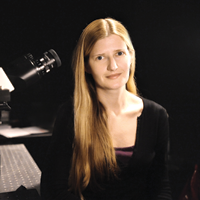
ELIZABETH M. C. HILLMAN
Biomedical Engineering, with a joint appointment in Radiology
Elizabeth Hillman’s research focuses on the development of novel biomedical imaging and microscopy techniques that use light (optics) to capture information about the structure and function of living tissues. Her research to date has encompassed the demonstration of new optical techniques and imaging paradigms, as well as studies of fundamental physiology, particularly related to the relationship between blood flow and neuronal activity in the living brain (neurovascular coupling). Hillman’s work in this area has contributed new knowledge about the cellular mechanisms and neural underpinnings of the hemodynamic signals detected in functional magnetic resonance imaging (fMRI). Her major technological contributions have included the recent development of swept, confocally-aligned planar excitation (SCAPE) microscopy, licensed to Leica Microsystems. Her teaching at Columbia has focused on advanced microscopy, biomedical imaging, and disruptive design and commercialization.
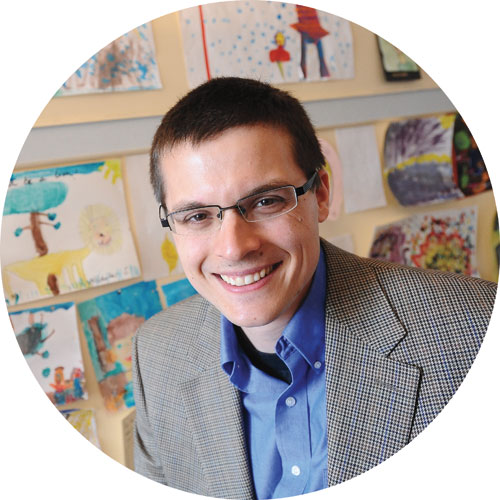
ROCCO SERVEDI
Computer Science
Rocco Servedio is a theoretical computer scientist whose work aims at elucidating the boundary between computationally tractable and intractable problems. He has developed algorithms and established lower bounds for learning many fundamental classes of Boolean functions and probability distributions, as well as for property testing of such classes. His work in concrete computational complexity theory has yielded new lower bounds and state-of-the-art derandomization results for well-studied Boolean circuit models. A core goal that motivates and inspires much of Servedio’s work is to understand the structural properties of different types of Boolean functions using a range of analytic, algebraic, probabilistic, and combinatorial techniques. He is a Sloan Foundation Fellow and a 2013 recipient of the Columbia University Presidential Teaching Award.
Promotion to Tenure
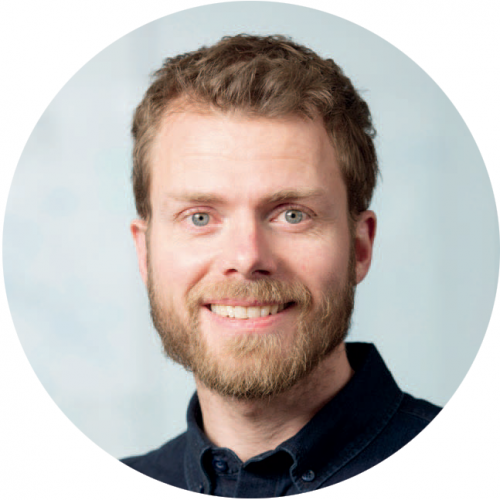
PIERRE GENTINE
Earth and Environmental Engineering
Pierre Gentine investigates the continental hydrologic cycle using multiscale modeling and big data (machine learning, remote sensing, high-resolution turbulent simulations) in the context of rising CO2 concentrations. Gentine hopes to answer questions about the future of droughts and extreme dryness/ precipitations, and their impact on agricultural production. He is an investigator at the Columbia Water Center and director of the Graduate Program in Earth and Environmental Engineering. He has won an NSF CAREER Award, a NASA New Investigator Program Award, a Department of Energy Early Career Award, the Clarence Meisinger Award from the American Meteorological Society, and a Global Environmental Change Early Career Award from the American Geophysical Union.
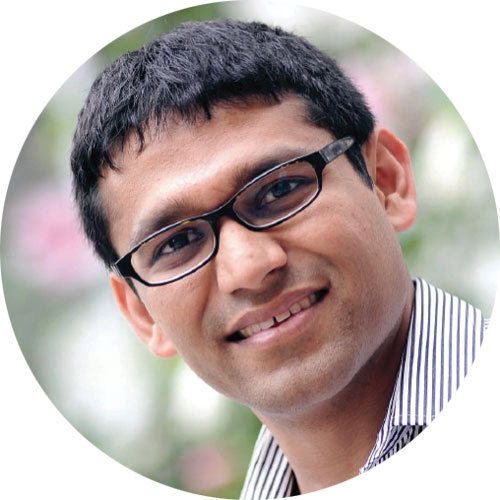
VINEET GOYAL
Industrial Engineering and Operations Research
Vineet Goyal’s research interests include dynamic optimization and decision making under uncertainty. He investigates the design of tractable approaches for dynamic optimization problems under uncertainty and their applications in electricity markets and revenue management problems. He has received an NSF CAREER Award, a Google Faculty Research Award, an IBM Faculty Award, and an Adobe Digital Marketing Research Award.

MARTHA KIM
Computer Science
Martha Kim develops tools and techniques to help computer systems operate efficiently and intuitively. Her projects attack inefficiencies and hidden behaviors resulting from the complex structure of modern computer systems. Of particular interest to Kim are interactions between hardware and software. Her current research seeks to improve the versatility and usability of specialized hardware accelerators that abound in today’s chips. She is a member of the IEEE and the Association of Computing Machinery and has received an NSF CAREER Award, a Google Faculty Research Award, and a Borg Early Career Award from the Computing Research Association – Women.

JOHN WRIGHT
Electrical Engineering
John Wright develops efficient computational tools to address massive data sets. As data sets grow, and data collection techniques become increasingly uncontrolled, it is common to encounter noise, missing data, and even gross errors or malicious corruptions. His group develops methods for recovering lowcomplexity models from noisy, incomplete, or corrupted observations; proves their correctness; and collaborates with a wide range of colleagues to apply them to problems in data science, imaging, vision, health, and communications. Wright has made fundamental contributions to the theory and practice of estimation from noisy, incomplete, and corrupted observations. From 2009 to 2011, he was with Microsoft Research Asia and is the recipient of the 2015 PAMI TC Young Researcher Award from the IEEE.
Promotion to Associate Professor
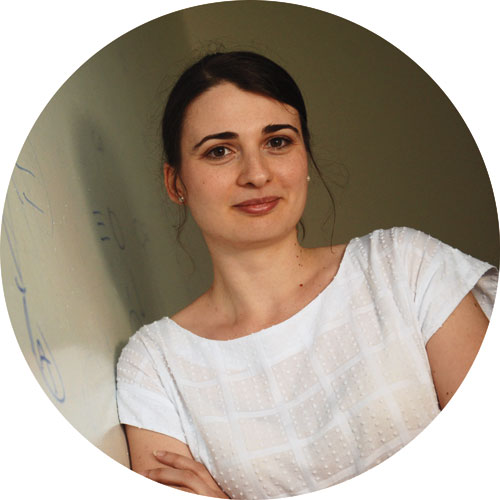
ROXANA GEAMBASU
Computer Science
Roxana Geambasu’s research spans broad areas of computer systems, including distributed systems, security and privacy, operating systems, and applications of cryptography and machine learning to systems problems. Much of Geambasu’s ongoing research aims to develop a new model for privacy for today’s data-driven world. Geambasu and her team design, build, and evaluate new transparency tools, new development tools, and new abstractions for responsible data management in order to create a new model for addressing personal privacy issues. Geambasu is a member of Columbia’s Data Science Institute, as well as a recipient of the Alfred P. Sloan Faculty Fellowship, a Microsoft Research Faculty Fellowship, an NSF CAREER Award, an Early Career Award in Cybersecurity from the University of Washington Center for Academic Excellence, and the first Google PhD Fellowship in Cloud Computing. She was named one of the “Brilliant 10 of 2014” by Popular Science.
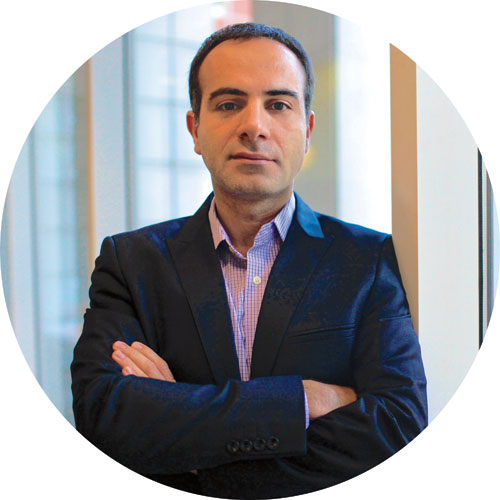
NIMA MESGARANI
Electrical Engineering
Nima Mesgarani’s research is focused on the exploration of human speech communication. He studies representational and computational characteristics of the human brain areas involved in naturalistic speech communication and integrates these attributes into novel mathematical models used in machine emulation of speech. Better models of the underlying neural mechanisms involved in speech processing can critically impact research in artificial intelligence, neurolinguistics, systems neuroscience, translational medicine, and brain-computer interfaces. He is also engaged in interdisciplinary research that has made breakthroughs in auditory attention decoding (AAD) methods that could improve devices for the hearing impaired. Mesgarani was named a Pew Scholar for Innovative Biomedical Research and is the recipient of an NSF CAREER Award. He is affiliated with both the Data Science Institute and the Zuckerman Mind Brain Behavior Institute.
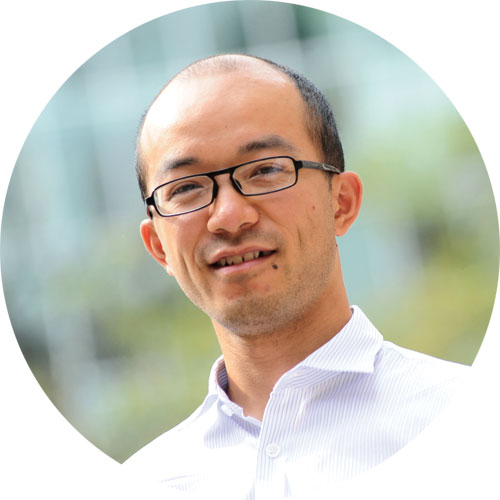
CHANGXI ZHENG
Computer Science
Co-director of Columbia’s Computer Graphics Group, Changxi Zheng works in applied computer science, focusing on computational fabrication, computer graphics, and scientific computing. A major area of focus concerns the realistic synthesis of virtual sounds for computer graphics applications and its engineering applications. He and his team are developing practical algorithms that automatically generate virtual sounds synchronized with animated dynamics. The goal is to create realistic virtual environments that are both visible and audible for training, design, entertainment, or other applications. More broadly, he is interested in realistic simulations that involve complex dynamics and the use of computational methods for engineering designs. Zheng serves as an associate editor of ACM Transactions on Graphics, has won an NSF CAREER Award, and was named one of Forbes’s “30 under 30” in science and healthcare in 2013.
